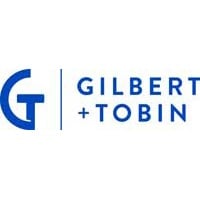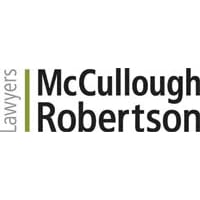

Group general counsel and head of legal | Aurizon Holdings





David Wenck
Group general counsel and head of legal | Aurizon Holdings
Head of legal and group general counsel | Aurizon Holdings
For the past eight years David Wenck has been head of legal and group general counsel for Aurizon Holdings, leading a high performance in-house legal team comprised of 15 lawyers....
The sale of Aurizon’s Intermodal Business to Linfox; Acacia Ridge Rail Terminal to Pacific National and its rail grinding business to Loram. Federal Court litigation against the ACCC on merger clearance of Acacia Ridge to PN; Supreme Court litigation on the Wiggins Island Rail Project; and Supreme Court litigation against the QCA and its chairman. Finalisation of UT5 access undertakings for Aurizon Network.
There are probably four issues that are really important to ensure are in place when structuring an in house legal team.
First and foremost is to maintain a level of independence from the business you’re advising. So much flows from that but most importantly is the ability to provide legal services to our clients in the same way as an external lawyer does and obtain all the benefits that come from that independence, most importantly legal professional privilege claims over advice the inhouse team provides our clients.
Secondly, it is important to embed team members into client teams or at least align your lawyers’ expertise with the demands of the business they advise.
Thirdly, for smaller teams like ours, where we have around ten lawyers providing services across six different business units, we’ve also found it essential that the team can flex across business units where demand requires it. We don’t have the luxury of permanently aligning our lawyers to just one business unit that necessarily requires a team with multi faceted skills and expertise.
Fourthly, it’s essential as general counsel to have a seat at the executive table and participate in all the key decision forums. Likewise, it is important for the legal team to also have a seat at the relevant business unit leadership team forums. It enables deep insight into the commercial and operational issues so our advice is more tailored and practical in all the circumstances.
Recruitment of the right people is so critical to the overall success of the team and their performance. It is also one of the hardest things to get right. In our experience our most successful recruiting has come from recruiting people we have worked with when we were in private practice or recommendations from our panel firms of lawyers they have worked with. Our other successful area of recruitment has been from secondees who have chosen to stay on with us instead of returning to the firm. In short, where one can “try before you buy” will almost always assist in the right recruitment decision.
Having said all that, we look for lawyers who have been first-tier trained at least for two to three years. High quality supervision and exposure to quality work makes a big difference for lawyers who make the move in house. We also look for lawyers who can assert themselves when necessary and be commercially and solution focussed. And finally, I often find that junior or less experienced lawyers tend to focus too quickly on the legal issues at hand without seeing the big picture first. We look for lawyers who are naturally inquisitive about the broader issue first before trying to identify the legal issues and solutions.
All strategic business decisions involve the law in some way. In my 10 years in corporate practice, legal issues are often the paramount consideration in many of the strategic initiatives the company pursues. It is therefore critical for the business to understand and factor in any legal constraints or opportunities very early on in any strategic initiatives being considered. Another really important benefit that flows from involving internal legal early and continuously is to help identify relevant stakeholders and their potential impact on the issue at hand. Those stakeholders are almost invariably the same groups for every issue: regulators, customers, competitors and governments. Legal will more often than not have insights into the impacts those stakeholders can have.
In a quantitative sense we use financial and operational performance KPI’s to measure value. Our panel firms report on this each month. It includes such things as accuracy of billing, management to fee estimates and their turn-around times for tasks. In a qualitative sense we assess commercial alignment to our business, skill and expertise; ready availability for support; quality of secondees, speed at management of conflicts, interpersonal relationships with executive and board (for example the confidence the external partners engender in board and executive).
Firstly, technology and our panel firms’ willingness to provide innovative technology based solutions to the many challenges faced by in house teams. This is something that I am seeing as a real differentiator between law firms.
Secondly, access to high quality and cost effective litigators is important. Increased regulator activity and intervention is putting significant pressure on the availability of experienced quality litigators at both the firm level but also the Bar. Most of our major litigation involves complex issues and once conflicts have been managed, there is a small group of available practitioners to choose from.
Finally, we are seeing litigation being used more and more to proactively shape a commercial outcome than has traditionally been the case in the past. For example, we are seeing firms resort to Court processes as the preferred tribunal to achieve regulatory clearances where there is a sense that litigation will provide for a more certain outcome than other non litigious regulatory processes. Competition law and merger clearance is a good example of this.
The technology advancements likely to have the most impact on us will be the use of AI for the more menial tasks. The more we can free up our in house team from low value administrative tasks the more time they can spend on complex and strategically important matters for the company. It will have the effect of re shaping the skills of the in house lawyer with less reliance upon external law firms.